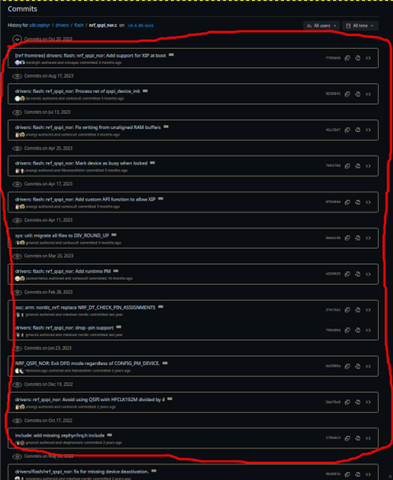Hi
I'm using nrf toolchain/sdk 2.5.2.
Got a strange problem with my QSPI NOR flash interface. when i run flash_erase i get error message "qspi_nor: Failed to schedule device sleep: -16" pretty much immediately. but the flash does seem to erase correctly.
in func qspi_erase() in nrf_qspi_nor.c if i put a breakpoint on ln689 which calls qspi_device_uninit(dev) and wait for 20+ seconds i do not receive the error. This corresponds roughly with whole long a full flash erase takes for my mx25r0835f flash chip. It looks like the qspi drivers aren't waiting for the flash to actually erase before deinit?
qspi_wait_for_completion returns immediately if that is relevant?
Any idea how i can resolve this issue?
Regards
Robert
call to flash_erase, where flash_dev points to the dts device below, address=0 and size = 1048576
Relevant section of my dts:



